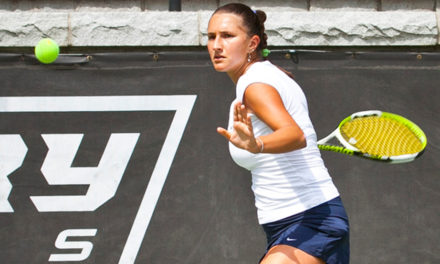1. That Douchebag
Everyone knows that douchy kid from high school who thought he was the absolute shit and talked with a vocabulary which implied he was so much cooler than everyone else. He ended every sentence with “bro” or “bre” or “bruh,” depending on which coast you’re from, and was just generally shitty to be around.
Trevor Bauer is without a doubt that person. A top Arizona Diamondbacks pitching prospect he was inexplicably traded for below market value this offseason to the Cleveland Indians.
A lot of people talked about how the Diamondbacks didn’t like his attitude.
His catcher Miguel Montero had nothing nice to say about him.
In an interview with the Arizona sports radio station 620, Montero said. “”When you get a guy like that and he [Bauer] thinks he’s got everything figured out, it’s just tough to commence and try to get on the same page with you. . . Good luck to (Indians catcher) Carlos Santana there.”
Bauer responded like any self-respecting, intolerable, douchebag would. He wrote a rap song about it.
You can google it if you really want to hear about it, but we will leave you with these two things:
1) The song is called “You Don’t Know Me”
2) The following is a sample verse, “Knock me down/I’ll pop back up like rubber bands/and sting these bees a hell of a lot better than a bumble can”
We’re gonna leave it at that.
2. Oscar Pistorius, That Actual Douchebag
In some of the most sobering news from the sports world in years, Paralympic superstar and Olympic athlete Oscar Pistorius was charged Thursday with the murder of his girlfriend, Reeva Steenkamp.
Pistorius, whose legs were amputated as a child, was hailed as a worldwide hero during the 2012 Summer Olympics when he qualified for the 400-meter finals on artificial legs. The media dubbed him “Blade Runner” and turned him into a global icon.
On February 13th he was arrested for shooting his girlfriend, after a history of run-ins with domestic abuse charges.
This is another in a string of horrible reminders that athletes are not statues and, in far too many cases, not even worthy idols.
One only has to think back to the Penn State scandal and Joe Paterno’s fall from grace to recall such a huge blow to the hearts of sports fans across the globe. Think back a little further and Lance Armstrong and Tiger Woods come to mind.
It shouldn’t be our hearts that hurt, but our consciences. Pistorius has become no more than another reminder of the dangers of blind idolization. When it comes down to it, athletes are just people, and there are a fair number of rotten people in the world. Being especially talented at sports doesn’t make a man any more worthy of the “role model” tag than another.
When the media, or even we, the fans, ignore Pistorius’ history of domestic abuse and run-ins with the law, we contribute to the problem. When we praise Ray Lewis for his Super Bowl victory while brushing aside the fact that he too was arrested on murder charges, we contribute to the problem.
Sports are tests of athletic ability. Role models are built on character.
3. And Then There’s the NCAA
The NCAA’s fairly ridiculous rule that potential NBA players must spend one year in college before they’re eligible for the draft has finally come back to bite its makers.
University of Kentucky freshman Nerlens Noel was injured last week in a gruesome injury where his knee twisted in all sorts of ways a knee should not twist.
Noel was projected to be the top pick in the NBA Draft at the end of the season. Now, out for the season with a torn ACL, his draft prospects–and basketball career– are on much thinner ice than they used to be.
Here’s a prime example for the NCAA to do something they rarely ever do– issue a simple “we were wrong. Sorry Nerlens.”–and get rid of a rule that never should have been instituted.
Don’t fret for Noel, though. No man with that perfect a high-top fade will fail to reach his NBA dreams.
The Emory Wheel was founded in 1919 and is currently the only independent, student-run newspaper of Emory University. The Wheel publishes weekly on Wednesdays during the academic year, except during University holidays and scheduled publication intermissions.
The Wheel is financially and editorially independent from the University. All of its content is generated by the Wheel’s more than 100 student staff members and contributing writers, and its printing costs are covered by profits from self-generated advertising sales.




